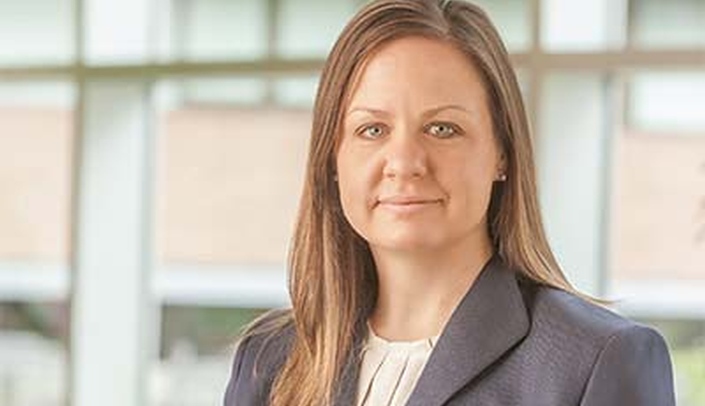Adolescents come to the emergency room each year with gunshot wounds, stab wounds or assault injuries. A team of health professionals rally to save their lives. But some of the injuries are too severe.
Telling parents that their child has died weighs on health professionals. A group of health professionals at the University of Nebraska Medical Center and its clinical partner, Nebraska Medicine, took action two years ago to prevent violent injuries by launching a program called Dusk to Dawn that involves community partners.
Called D2D, the program has served close to 400 youth age 12 to 18 since its inception in April 2017, said Charity Evans, M.D., associate professor of surgery at UNMC and trauma surgeon at Nebraska Medicine, who heads the program. You Turn, Boys and Girls Club of the Midlands and Omaha Police Department are the medical center’s partners.
"Our referral network has grown dramatically," Dr. Evans said. "We’re starting to see kids from community-based organizations like Girls Inc., the Hope Center, Latino Center of the Midlands, the Nebraska Family Helpline, as well as referrals from parents themselves, and the juvenile justice services in Douglas County."
D2D expanded and now Douglas County Youth Corrections hosts the program in-house. "That was a big step. Though the young people may not be there on violent charges, the fact that they’re incarcerated is a risk factor," Dr. Evans said.
Dusk to Dawn has grown into something the team couldn’t have imagined.
"It really has been quite successful. It speaks to the need in the community," Dr. Evans said. We found that the kids really wanted to talk more about emotions and the use of emotions in conflict resolution."
A new program funded by the Omaha Mayor’s Office and the Robert Woods Johnson Foundation — Strengthening Families Program 10-14 — recently started. It brings together Omaha families once a week for seven weeks. The idea is for parents and youths to learn and build parenting and life skills.
Another program that should be up and running in the next year is a hospital-based violence intervention program for patients admitted with a violent injury. With this program, victims of violence would be linked to community-based programs in conjunction with outpatient case management.
Currently, it’s difficult to know if their work is preventing violence, Dr. Evans said.
She recently wrote an abstract on the program that explored how violence is learned and the role family, friends and the community play in shaping youth attitude toward violence. Pre- and post-program surveys from youths helped identify what are risk factors and what high-risk situations exist in their lives. It helps youths better understand their own risk factors, she said.
"But what I can tell you is that that in the two-and-a-half hours that we’re with them, we do see a shift in their attitudes toward violence and the use of violence. Close to 83 percent of the D2D participants agree or strongly agree that the program helped them better understand, and 83 percent also would recommend D2D to other kids their age."
When asked what youths want next, up to 50 percent said they would want to meet and talk again.
"This indicates that additional programming is crucial in decreasing youth violence," Dr. Evans said. "It’s going to take time and we want to continue to help that process. We’re trying to have conversations in hopes of preventing of what we see here in the trauma bay."
The D2D team now is in early discussions to create a second phase of the program and bring youth back for additional conversation and education.
We are Nebraska Medicine and UNMC. Our mission is to lead the world in transforming lives to create a healthy future for all individuals and communities through premier educational programs, innovative research and extraordinary patient care.
Twitter | Facebook | Instagram | YouTube | Flickr
UNMC, Nebraska Medicine youth violence prevention program grows
- Written by Vicky Cerino
- Published Apr 3, 2019

Media Contact
Vicky Cerino
UNMC Strategic Communications
(402) 559-5190
(402) 559-4353
vcerino@unmc.edu